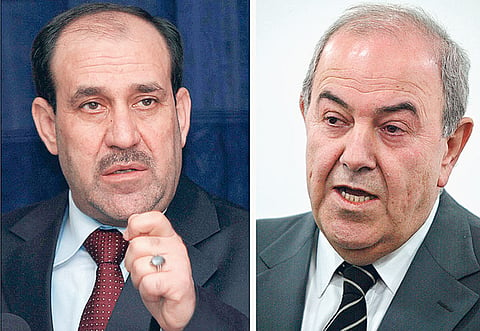Iraq can't do without stable government
The country's politicians are failing their people by continuing to squabble

The Iraqi people have every right to be very frustrated with their politicians. Almost nine months after voters went to the polls, the politicians are still arguing about who will form the government.
It now looks certain that Nouri Al Maliki will continue as prime minister, with the support of Moqtada Al Sadr's bloc, but it is not certain if Eyad Allawi's Al Iraqiya — which has the most seats in the new parliament — will join the government, or become the opposition. The parties will also spend weeks arguing about which ministries they will run, as they jockey for power in the new government.
This all means that it is far too early to congratulate the Iraqi politicians on any success, even if the basic structure of the new government has emerged.
The agreement between Al Maliki and Al Sadr shows that Iraq's two leading Shiite politicians want to make the constitutional system work, and also want to keep Allawi out of power. They are achieving this with the cooperation of the Kurds, whose main interest is not the health of the federal government, but ensuring their own autonomy in the north.
The new government will face several important tests. It will have to balance the regional concerns of Iran and Saudi Arabia and it will have to solve the seemingly insoluble conundrum of deciding whether Kirkuk — with its substantial oil reserves — should form part of Iraqi Kurdistan or not.
At the same time, the new government will have to get on with the essential task of delivering good governance across the country.
Iraq desperately needs confidence and peace in order to prosper, and this is what its new government has to prioritise.
Sign up for the Daily Briefing
Get the latest news and updates straight to your inbox



